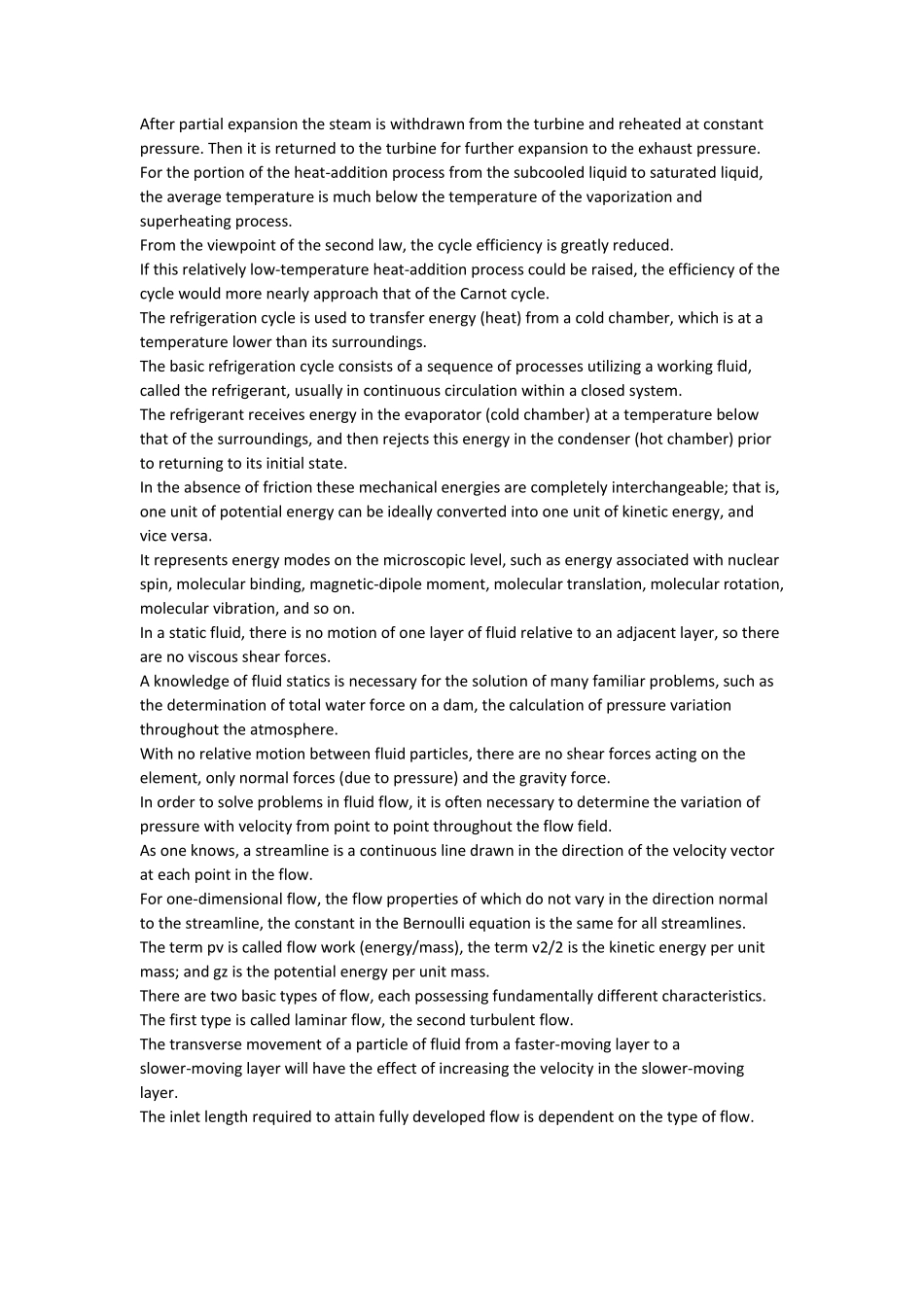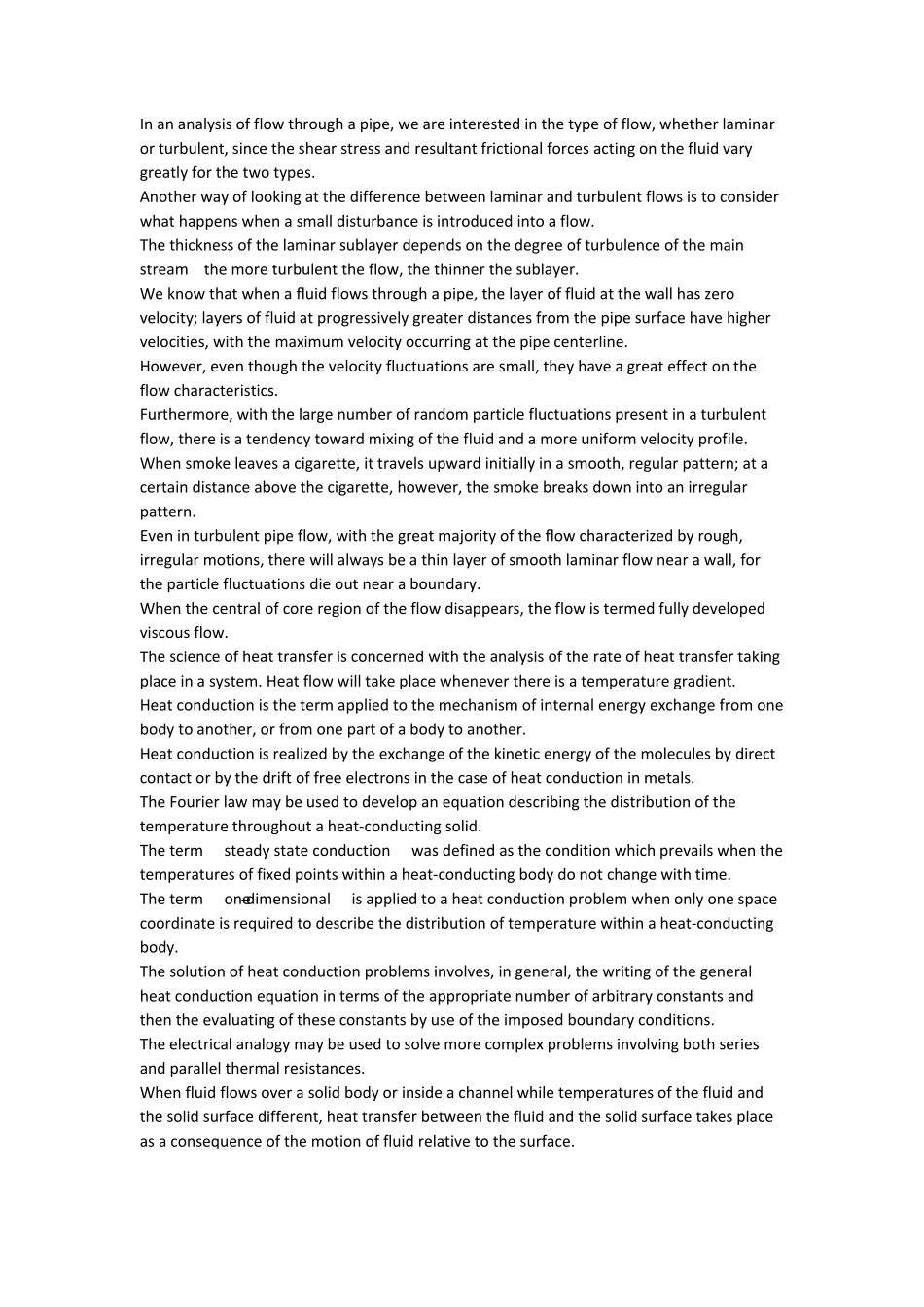Through the application of thermodynamic principles, modern heat engines have been developed. We are facing the reality that fossil fuel reserves are diminishing and will be insufficient in the forseeable future. Consequently, to those who study thermodynamics, increasing efficiency in the use of fossil fuels and the development of alternate sources of thermal energy are the real challenges to technology for today and tomorrow. Thermodynamics is a branch of science which deals with energy, its conversion from one form to another, and the movement of energy from one location to another. Thermodynamics is involved with energy exchanges and the associated changes in the properties of the working fluid or substance. Although thermodynamics deals with systems in motion, it does not concern itself with the speed at which such processes or energy exchanges occur. Thermodynamics, like other physical sciences, is based on observation of nature. Engineering thermodynamics consists of several parts, such as basic laws, thermal properties of the working fluids, process and cycle and so on. Energy is a primitive (原始的)property. We postulate(假定) that it is something that all matter has. Kinetic energy and potential energy are two forms of mechanical energy. A change of the total energy is equal to the rate of work done on the system plus the heat transfer to the system. Enthalpy can be used either as an extensive property H or as an intensive property h. The two terms v2/2 and gz represents kinetic energy and potential energy respectively. Although the net heat supplied to a thermodynamic system is equal to the net work done by the system, the gross energy supplied to the system must be greater than ...


